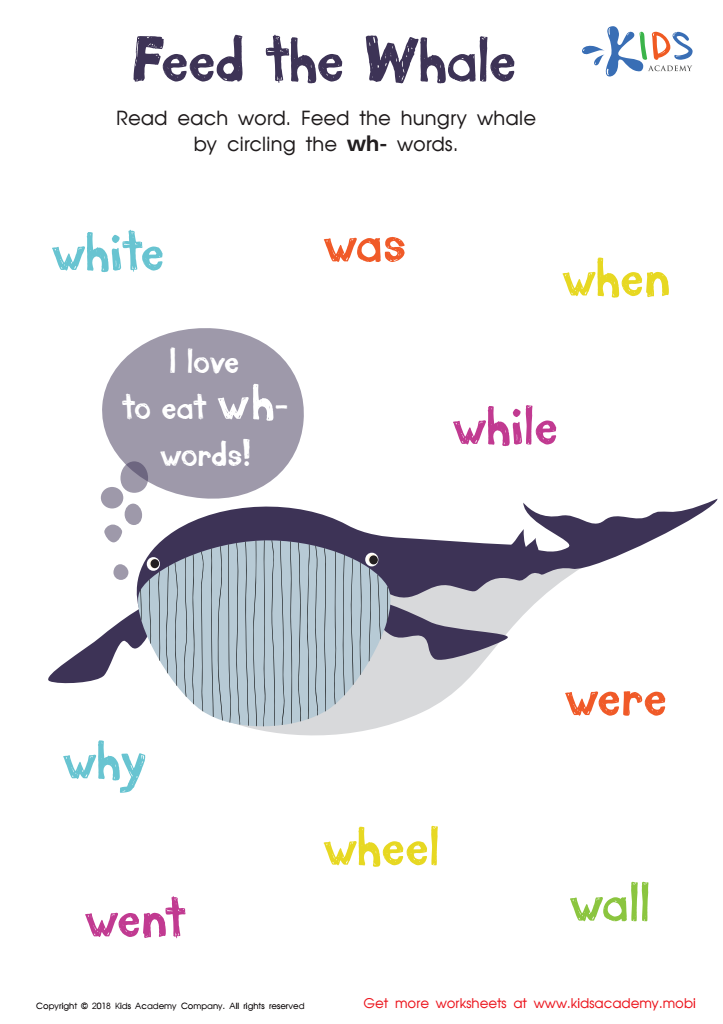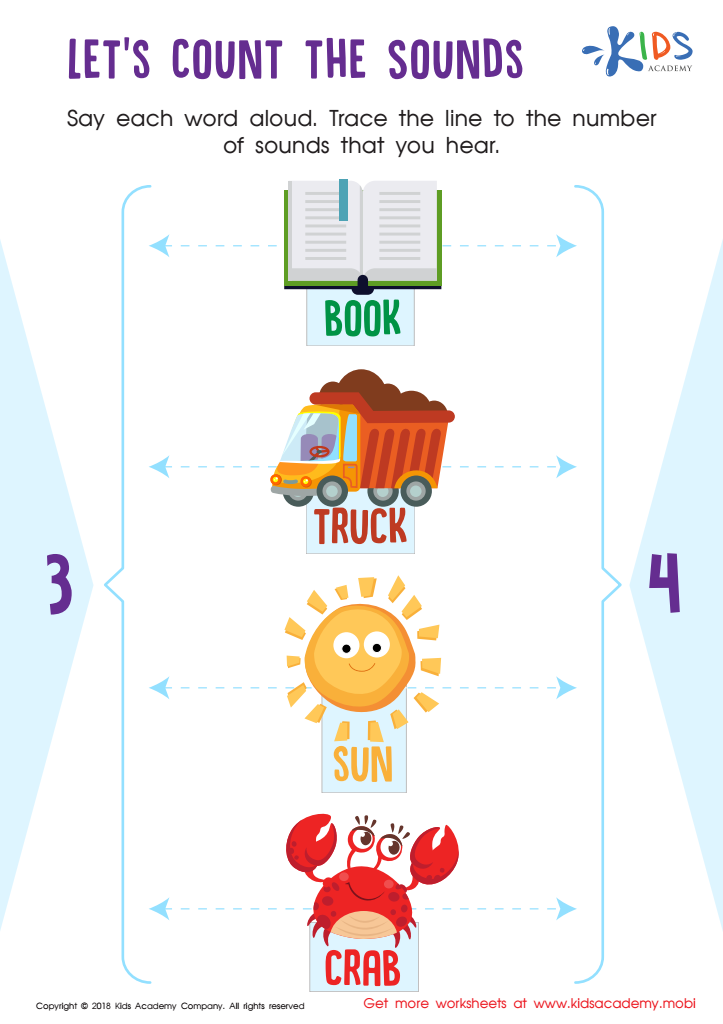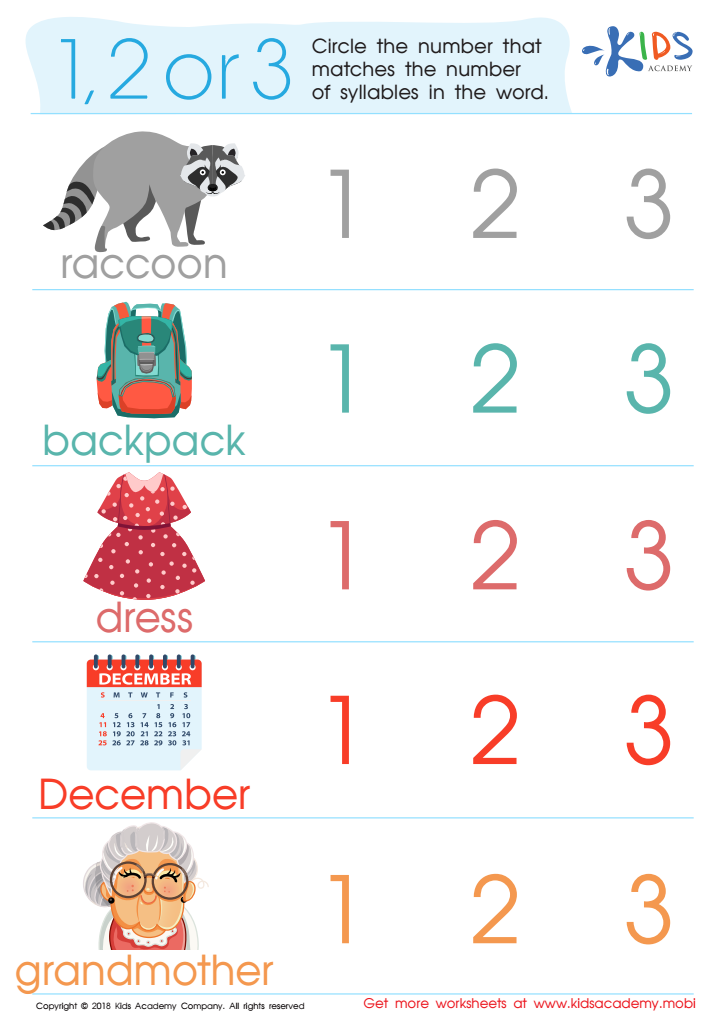Counting skills Normal Phonics Worksheets
3 filtered results
-
From - To
Dive into our “Counting Skills Normal Phonics Worksheets” designed to enhance your child’s foundational numeracy while reinforcing phonics knowledge. These engaging worksheets blend counting exercises with phonetic activities, making learning both effective and fun. Young learners will practice number recognition, counting objects, and matching numbers with phonetic sounds. Tailored for early grade educators and parents, our resources nurture essential skills in a playful environment. Each worksheet encourages children to connect phonics with counting, reinforcing their understanding through interactive activities. Explore the collection today and help your child build confidence in their counting and phonics abilities! Ideal for homeschooling and classroom use.


Feed the Whale Worksheet


Let's Count the Sounds Worksheet


1, 2 or 3? Worksheet
Counting skills and phonics are foundational elements in early education that significantly impact a child's academic journey. For parents and teachers, understanding and nurturing these skills is crucial for a child's cognitive development and literacy.
Counting skills instill a sense of numeracy that extends beyond mere number recognition. They promote problem-solving abilities, critical thinking, and logical reasoning. Early grasp of counting helps children understand basic math concepts such as addition, subtraction, and patterns, fostering confidence in their abilities as they progress in school.
Similarly, phonics is essential in developing reading skills. Phonics teaches children the relationship between sounds and letters, enabling them to decode words and read fluently. Strong phonetic skills are integral to comprehension and vocabulary growth. Children who master phonics often exhibit enhanced confidence in their reading and writing abilities.
Additionally, both counting and phonics encourage positive learning habits, such as persistence and focus. When children excel in these areas, they’re more likely to engage actively in classroom activities, enhancing their overall educational experience. By prioritizing counting and phonics, parents and teachers set the stage for lifelong learning and success.
 Assign to My Students
Assign to My Students




















